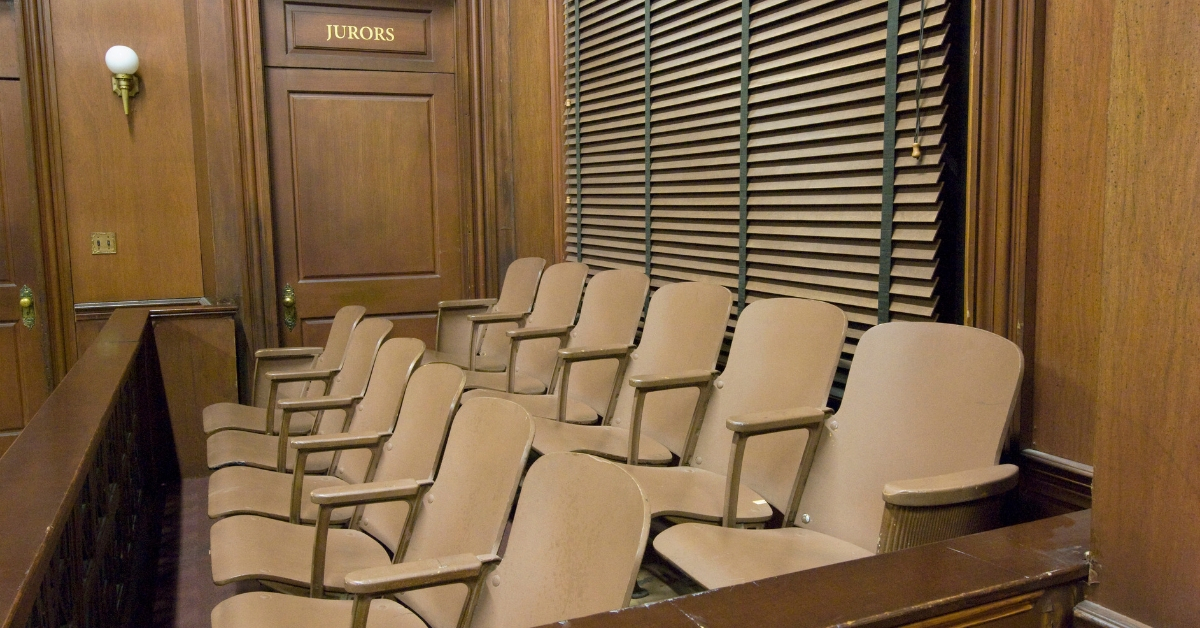It’s becoming increasingly more common for financial institutions, including businesses in the crypto space, to receive grand jury subpoenas. Thus, it’s very possible that your cryptocurrency business could be the recipient of one in the not so distant future. The important question is, how should you respond?
Responding to a grand jury subpoena is not as straightforward as it may seem, so it’s important for you to be prepared with a response plan as part of your crypto AML compliance program.
We’re continuing our series of cryptocompliance 101 posts to help cryptocurrency business owners understand the regulatory landscape, its nuances, and what steps need to be taken to strengthen their compliance.
Today, we’re focusing on grand jury subpoenas – what they are, how to respond if you receive one, and how to incorporate a grand jury subpoena response plan into your cryptocurrency compliance program.
What Are Grand Jury Subpoenas?
 Grand juries are used to determine if enough evidence exists to charge a person with a federal crime and issue an indictment so the case can go to trial. Grand jury subpoenas are legal writs issued by government investigators to gather said evidence.
Grand juries are used to determine if enough evidence exists to charge a person with a federal crime and issue an indictment so the case can go to trial. Grand jury subpoenas are legal writs issued by government investigators to gather said evidence.
Think of it as a request for documents that will be used in support of an investigation.
Sounds like no big deal, but this is a request you can’t ignore. Your business is required under the USA PATRIOT Act to respond to the subpoena by providing the requested documents before the deadline identified in the subpoena.
How Should Cryptos Respond To Grand Jury Subpoenas?
Responding to grand jury subpoenas should be considered a top priority for every employee who is involved in your response process; it can be broken down into five primary steps as follows:
1. Receipt Of The Grand Jury Subpoena
When your business receives a grand jury subpoena, it should immediately be stamped as received with the date and delivered directly to the person in charge of receiving and responding to them.
For your crypto company or MSB, this person may be your BSA Compliance Officer or someone who reports to your BSA Compliance Officer in a document custodian role.
By dating and stamping the subpoena, you’re taking the first step in creating a document trail that could be requested by the grand jury in the future.
2. Request Documents From Employees

Once the grand jury subpoena is received, it should be reviewed to determine what documents must be located in order to respond. The person reviewing the subpoena must also identify who in the company has access to those records and request the documents from those individuals.
At the same time, every employee should be notified that a grand jury subpoena has been received and no electronic or hard copy documents or communications should be deleted or discarded until further notice. They should also be reminded that grand jury subpoenas are confidential and should not be discussed with anyone.
Again, retain copies of this correspondence as part of your tracking process, and start a log to record all activities and communications related to the request in one place.
3. Retrieval Of The Documents By Your Employees
When employees receive a request for documents, they should search through their electronic and hard copy files to find any relevant information and return it by the due date to the BSA Compliance Officer (or the document custodian).
Make sure that employees return all documents marked with the date retrieved, where it was stored, and a description of what it is. Include all of this information in your response log file.
In addition, all documentation and correspondence should be kept secret throughout the entire response process and after the documents are delivered to the grand jury.
4. Review The Documents
When the BSA Compliance Officer or document custodian receives all of the documents to respond to the grand jury subpoena, they should collect everything for delivery, label all documents, and make sure the accompanying response tracking log is complete.
The goal is to show the prosecutor that your crypto MSB is actively complying and not trying to impede the investigation in any way. Therefore, the documents should be reviewed for completeness to ensure everything requested (but nothing extra) is included in the response.
5. Respond To The Grand Jury Subpoena
With all the materials in order, it’s time to send everything to the grand jury. Follow the instructions in the subpoena to do so. Typically, you’ll be required to deliver the records to the grand jury when it’s in session.
If you (or your employees) fail to comply with the request or you disclose the existence of the subpoena to anyone (indirectly or directly), you could be accused of obstruction of justice under the federal obstruction of justice criminal statute, 18 U.S.C. § 1510(b). This statute states that it’s illegal to disclose this information whether or not you intend to do so. If you’re found guilty, you could be faced with fines and one to five years in prison.
In addition, the Financial Institutions Reform, Recovery, and Enforcement Act (FIRREA) has its own punishment for financial institutions that disclose information related to a grand jury subpoena whether or not you intend to disclose that information. If you’re found in violation, your MSB could face additional fines.
Finally, when responding to a grand jury subpoena, it’s essential that the BSA Compliance Officer reviews the documents sent to the grand jury for suspicious activity. Receiving a grand jury subpoena doesn’t mean a Suspicious Activity Report (SAR) must be filed. However, if suspicious activity is identified as a result of receiving a grand jury subpoena, then that activity must be reported through your crypto MSB’s SAR filing process.
How Does Grand Jury Subpoena Response Fit Into Cryptocompliance?
It’s critical that your crypto AML compliance program includes a process to receive and respond to grand jury subpoenas. At a minimum, make sure your program answers the following questions:
- Who will receive grand jury subpoena requests?
- How will the notification to employees directing them not to delete documents be disseminated? Will the IT staff need to cancel any digital auto-deletion processes? How will the temporary deletion ban be lifted and communicated to employees?
- What process will be used to gather requested documents?
- How will actions taken in response to a grand jury subpoena request be tracked?
- How will documents be labeled and logged?
- Who will manage the process of gathering documents to ensure the deadline is met?
- Who will communicate with prosecutors or law enforcement?
Once you’ve developed the grand jury subpoena response process within your cryptocompliance program, it’s important that every employee is trained on the program and understands their role in responding to subpoenas and keeping them confidential.
Keep in mind, this type of compliance training shouldn’t be done when a new employee comes on board and then never addressed again. Compliance procedures should be audited to ensure they’re working and employees should receive refresher or updated training on an ongoing basis.
Remember, intent to break the law doesn’t matter when it comes to directly or indirectly disclosing information related to a grand jury subpoena. Training is essential to keep you and all of your team members compliant.
Key Takeaways For Cryptos About Grand Jury Subpoenas
It’s important for your cryptocurrency business to have a process for responding to a grand jury subpoena before you ever get one. Responding isn’t as straightforward as it seems. You’ll be asked to gather documents, however, you do need to track those documents, make sure you don’t reveal anything that isn’t explicitly asked for, and keep the entire process confidential.
A robust cryptocompliance program should include a detailed policy and process for responding to grand jury subpoenas.
If you feel stuck, BitAML has experience crafting policy for responding to grand jury subpoenas, as well as full turnkey AML programs for cryptocurrency businesses. You can reach out to us for a free consultation.


